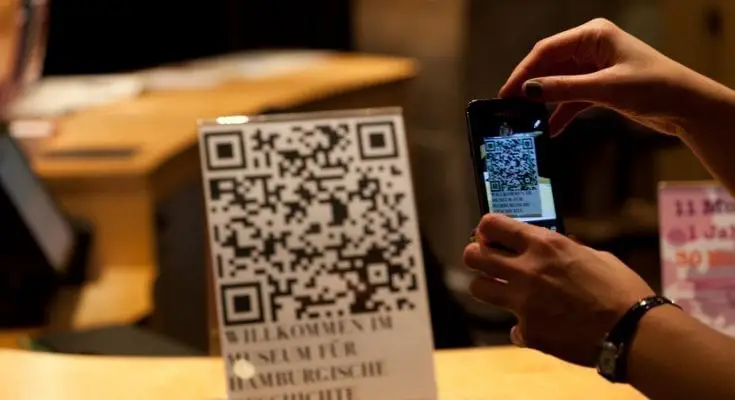QR Code Facts
A QR code works the same way that a traditional bar code does. Designed in 1994 by the Japanese to track their car parts, the QR now is used commonly by big and small businesses alike not just in Asia but throughout the global economy. People can use QR codes to send and receive Bitcoin as well, and before you know it other money like Tezos.
How Is A QR Code Read?
The QR code is an improvement on the conventional bar code as it can store manifold information that the regular bar code can. Additionally, they can be scanned from any angle and background interference is minimal. Google, Facebook, Microsoft, and others all have technology to built it or work with it, and it’s even inside a Tesla.
FAQ
How Is A QR Code Read?
Generally QR codes are scanned by smartphones or other devices, some of which are at the point of sale.
How Is QR Code Created?
A QR code is a set of black squares arranged in random blocks on a white background. It is randomly created by advanced machines to make it unique.
How Does A QR Code Work?
A QR code works the same way that a traditional bar code does. Designed in 1994 by the Japanese to track their car parts, the QR now is used commonly by big and small businesses alike not just in Asia but throughout the global economy. People can use QR codes to send and receive Bitcoin as well, and before you know it other money like Tezos.
How Is QR Code Created?
A QR code is a set of black squares arranged in random blocks on a white background. It is randomly created by advanced machines to make it unique.
How To Read A QR Code
Most smartphones have apps with a QR code reader. So if you are using a QR code for any business campaign, your customers can walk into your office/store conveniently and read your QR code with their smartphone app. The Brookings Institution contends that QR codes will play a huge role in the future payments systems.
QR codes are black and white pixelated designs that can be used to embed any type of information desired, including text, website links, phone numbers, or email addresses. Although initially used in the automotive industry, QR codes are widely used today, including their use in ads, newspapers, and magazines.
A person who scans a particular QR code will be able to access the details embedded in the code. With almost everyone having a smartphone today and QR codes being widely used by several businesses, it’s become easier than ever to read a QR code. Here’s how you can.
If you’ve got a tablet or a smartphone that’s camera-equipped, you’ll also need to make sure you have a QR code app. Users of iOS can utilize RedLaser for this, while Android users can try RedLaser or even QR Droid. These apps can be downloaded for free and can handle a standard QR code efficiently.
Opening the app will activate your device’s camera, and a framing guide will appear on the screen. Bring the camera over the QR code to be scanned and hold it steady so that the app is able to read the code before it.
You’ll want to aim the camera directly over the QR code instead of at an angle and reduce the glare from any stray light sources. If the QR code is under direct sunlight, you’ll probably have to use your hand to cover it so that the app reads it properly.
Once the code is recognized, you’ll be directed to the details embedded in the code. It really is that simple!
QR codes can be put to work variously. Below, we discuss some of the ways in which QR codes may be applied –
- To direct you to the company’s social media handles like Twitter or Facebook or official website.
- As a discount code, which the customer can use during checkout.
- Use it to link to a Google Maps location.
Basically, a QR code is an encoded piece of data that can be read by smartphones TBH. Your smartphone decodes this data and presents you with information that you can understand. The information present in a QR code may be alphanumeric, binary, numeric, or even Kanji.
Additional Resources:
Interesting Facts About The Human Brain
Stay on top of other incredible technology and trends such as Uber, DuckDuckGo, Ecosia, Yandex, deep learning, computer vision, artificial intelligence, cannabis, magic mushrooms, fingerprints, delivery robots, self driving electric trucks, and much more.



